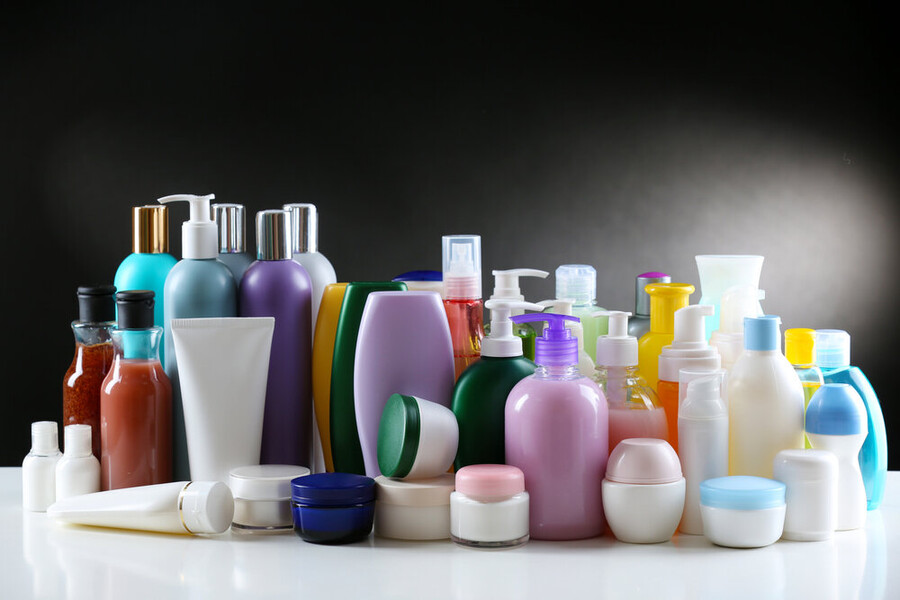Personal care products (PCPs) such as shampoo, deodorant, and fragrance often contain xenoestrogens. Xenoestrogens are industrial chemicals, such as parabens and phthalates, which have estrogenic activity. Estrogenic overstimulation can be carcinogenic in human breast tissue.
Scientists understand that increased exposure to xenoestrogens in PCPs could increase a person’s risk of breast cancer. A recent study looked at this issue in reverse, to see if reducing exposure to parabens and phthalates would reduce breast cancer risk.
In a recent webinar, Dr. William Goodson described this study into the effects on human tissues of reducing exposure to xenoestrogens. Since it is not ethical to intentionally expose people to chemicals of concern, the study was designed to eliminate certain exposures in individuals who were already exposed and monitor the impact.
The study was a community-based participatory research project, in which breast cancer survivors worked with breast cancer researchers to design and conduct research assessing the effects of reducing specific chemical exposures. Also in the webinar, Polly Marshall, JD, the Community Principal Investigator for the study, spoke about the community-based participatory research process.
Lowering cancer risk
The study looked at the effects of reducing participants’ exposures to the xenoestrogens present in their usual PCPs. Study participants discontinued their use of PCPs containing parabens or phthalates for a full 28-day period. The researchers collected pre- and post-intervention fine needle aspirates of breast tissue from the participants. They examined gene expression in these samples. They also examined whole cells for cancer-associated phenotypes.
With just 28 days of reduced exposures, the study found important changes that could reflect decreased risk of breast cancer.
Metabolites of parabens and phthalates decreased in the participants’ urine, indicating that the intervention reduced their exposure to these chemicals. In addition, breast cells from study participants who eliminated their use of these products had a reversal of cancer-associated phenotypes. Cells sampled at the end of the study showed a shift away from behavior that is typical of malignant cells, in the following ways:
- Breast cancer cells typically have fewer activated Erβ estrogen receptors than healthy cells. The study showed that participants’ cells had an increase in activated Erβ estrogen receptors after the intervention.
- Apoptosis is normal programmed cell death that removes damaged or unnecessary cells. Cancerous cells often evade apoptosis. The study showed reduced apoptosis evasion in the study participants’ cells after the intervention.
- The tissue samples taken from these study participants also showed changes in gene expression associated with the reduction in exposure.
Next steps for health-protective research
The study, “Reduction of daily-use parabens and phthalates reverses accumulation of cancer-associated phenotypes within disease-free breast tissue of study subjects,” helps to demonstrate that reducing exposure to hormonally active chemicals can reduce pro-carcinogenic phenotypes at the cellular level.
The findings highlight opportunities to reduce breast cancer risk by reducing or eliminating certain chemical exposures. Other researchers could adapt this methodology to study the health effects of other kinds of exposures.
Dr. Goodson emphasized the need for additional research to better understand links between chemical exposures and changes in gene expression, whether in breast cancer cells or in healthy breast cells. He noted that the studies in this area all examine different sets of genes. For the research to move forward, researchers must “compare results, identify points of difference in methodology, and then agree on a plan that can be implemented by two or more groups collectively.”
Protecting consumers
Ms. Marshall noted that the US FDA does not test or regulate PCPs for these chemicals. Until that changes, consumers need to protect themselves:
“You need to pay attention to what's in your products. There are many ways you can look it up, and there are healthy products coming out every day.”
Ms. Marshall also stressed that other places, such as the European Union and Japan, have stronger regulations to protect consumer safety from parabens and phthalates. Restricting or eliminating these chemicals in personal care products in the US could contribute to breast cancer prevention.
Visit the webinar page to watch the full recording and find out more about this important research.
This organizational blog was produced by CHE's Science Writer, Matt Lilley.

